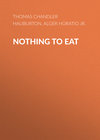Read the book: «Ragged Dick, Or, Street Life in New York with the Boot-Blacks», page 7
CHAPTER XVI
THE FIRST LESSON
Fortunately for Dick, his young tutor was well qualified to instruct him. Henry Fosdick, though only twelve years old, knew as much as many boys of fourteen. He had always been studious and ambitious to excel. His father, being a printer, employed in an office where books were printed, often brought home new books in sheets, which Henry was always glad to read. Mr. Fosdick had been, besides, a subscriber to the Mechanics' Apprentices' Library, which contains many thousands of well-selected and instructive books. Thus Henry had acquired an amount of general information, unusual in a boy of his age. Perhaps he had devoted too much time to study, for he was not naturally robust. All this, however, fitted him admirably for the office to which Dick had appointed him,—that of his private instructor.
The two boys drew up their chairs to the rickety table, and spread out the paper before them.
"The exercises generally Commence with ringin' the bell," said Dick; "but as I aint got none, we'll have to do without."
"And the teacher is generally provided with a rod," said Fosdick. "Isn't there a poker handy, that I can use in case my scholar doesn't behave well?"
"'Taint lawful to use fire-arms," said Dick.
"Now, Dick," said Fosdick, "before we begin, I must find out how much you already know. Can you read any?"
"Not enough to hurt me," said Dick. "All I know about readin' you could put in a nutshell, and there'd be room left for a small family."
"I suppose you know your letters?"
"Yes," said Dick, "I know 'em all, but not intimately. I guess I can call 'em all by name."
"Where did you learn them? Did you ever go to school?"
"Yes; I went two days."
"Why did you stop?"
"It didn't agree with my constitution."
"You don't look very delicate," said Fosdick.
"No," said Dick, "I aint troubled much that way; but I found lickins didn't agree with me."
"Did you get punished?"
"Awful," said Dick.
"What for?"
"For indulgin' in a little harmless amoosement," said Dick. "You see the boy that was sittin' next to me fell asleep, which I considered improper in school-time; so I thought I'd help the teacher a little by wakin' him up. So I took a pin and stuck into him; but I guess it went a little too far, for he screeched awful. The teacher found out what it was that made him holler, and whipped me with a ruler till I was black and blue. I thought 'twas about time to take a vacation; so that's the last time I went to school."
"You didn't learn to read in that time, of course?"
"No," said Dick; "but I was a newsboy a little while; so I learned a little, just so's to find out what the news was. Sometimes I didn't read straight and called the wrong news. One mornin' I asked another boy what the paper said, and he told me the King of Africa was dead. I thought it was all right till folks began to laugh."
"Well, Dick, if you'll only study well, you won't be liable to make such mistakes."
"I hope so," said Dick. "My friend Horace Greeley told me the other day that he'd get me to take his place now and then when he was off makin' speeches if my edication hadn't been neglected."
"I must find a good piece for you to begin on," said Fosdick, looking over the paper.
"Find an easy one," said Dick, "with words of one story."
Fosdick at length found a piece which he thought would answer. He discovered on trial that Dick had not exaggerated his deficiencies. Words of two syllables he seldom pronounced right, and was much surprised when he was told how "through" was sounded.
"Seems to me it's throwin' away letters to use all them," he said.
"How would you spell it?" asked his young teacher.
"T-h-r-u," said Dick.
"Well," said Fosdick, "there's a good many other words that are spelt with more letters than they need to have. But it's the fashion, and we must follow it."
But if Dick was ignorant, he was quick, and had an excellent capacity. Moreover he had perseverance, and was not easily discouraged. He had made up his mind he must know more, and was not disposed to complain of the difficulty of his task. Fosdick had occasion to laugh more than once at his ludicrous mistakes; but Dick laughed too, and on the whole both were quite interested in the lesson.
At the end of an hour and a half the boys stopped for the evening.
"You're learning fast, Dick," said Fosdick. "At this rate you will soon learn to read well."
"Will I?" asked Dick with an expression of satisfaction. "I'm glad of that. I don't want to be ignorant. I didn't use to care, but I do now. I want to grow up 'spectable."
"So do I, Dick. We will both help each other, and I am sure we can accomplish something. But I am beginning to feel sleepy."
"So am I," said Dick. "Them hard words make my head ache. I wonder who made 'em all?"
"That's more than I can tell. I suppose you've seen a dictionary."
"That's another of 'em. No, I can't say I have, though I may have seen him in the street without knowin' him."
"A dictionary is a book containing all the words in the language."
"How many are there?"
"I don't rightly know; but I think there are about fifty thousand."
"It's a pretty large family," said Dick. "Have I got to learn 'em all?"
"That will not be necessary. There are a large number which you would never find occasion to use."
"I'm glad of that," said Dick; "for I don't expect to live to be more'n a hundred, and by that time I wouldn't be more'n half through."
By this time the flickering lamp gave a decided hint to the boys that unless they made haste they would have to undress in the dark. They accordingly drew off their clothes, and Dick jumped into bed. But Fosdick, before doing so, knelt down by the side of the bed, and said a short prayer.
"What's that for?" asked Dick, curiously.
"I was saying my prayers," said Fosdick, as he rose from his knees.
"Don't you ever do it?"
"No," said Dick. "Nobody ever taught me."
"Then I'll teach you. Shall I?"
"I don't know," said Dick, dubiously. "What's the good?"
Fosdick explained as well as he could, and perhaps his simple explanation was better adapted to Dick's comprehension than one from an older person would have been. Dick felt more free to ask questions, and the example of his new friend, for whom he was beginning to feel a warm attachment, had considerable effect upon him. When, therefore, Fosdick asked again if he should teach him a prayer, Dick consented, and his young bedfellow did so. Dick was not naturally irreligious. If he had lived without a knowledge of God and of religious things, it was scarcely to be wondered at in a lad who, from an early age, had been thrown upon his own exertions for the means of living, with no one to care for him or give him good advice. But he was so far good that he could appreciate goodness in others, and this it was that had drawn him to Frank in the first place, and now to Henry Fosdick. He did not, therefore, attempt to ridicule his companion, as some boys better brought up might have done, but was willing to follow his example in what something told him was right. Our young hero had taken an important step toward securing that genuine respectability which he was ambitious to attain.
Weary with the day's work, and Dick perhaps still more fatigued by the unusual mental effort he had made, the boys soon sank into a deep and peaceful slumber, from which they did not awaken till six o'clock the next morning. Before going out Dick sought Mrs. Mooney, and spoke to her on the subject of taking Fosdick as a room-mate. He found that she had no objection, provided he would allow her twenty-five cents a week extra, in consideration of the extra trouble which his companion might be expected to make. To this Dick assented, and the arrangement was definitely concluded.
This over, the two boys went out and took stations near each other. Dick had more of a business turn than Henry, and less shrinking from publicity, so that his earnings were greater. But he had undertaken to pay the entire expenses of the room, and needed to earn more. Sometimes, when two customers presented themselves at the same time, he was able to direct one to his friend. So at the end of the week both boys found themselves with surplus earnings. Dick had the satisfaction of adding two dollars and a half to his deposits in the Savings Bank, and Fosdick commenced an account by depositing seventy-five cents.
On Sunday morning Dick bethought himself of his promise to Mr. Greyson to come to the church on Fifth Avenue. To tell the truth, Dick recalled it with some regret. He had never been inside a church since he could remember, and he was not much attracted by the invitation he had received. But Henry, finding him wavering, urged him to go, and offered to go with him. Dick gladly accepted the offer, feeling that he required someone to lend him countenance under such unusual circumstances.
Dick dressed himself with scrupulous care, giving his shoes a "shine" so brilliant that it did him great credit in a professional point of view, and endeavored to clean his hands thoroughly; but, in spite of all he could do, they were not so white as if his business had been of a different character.
Having fully completed his preparations, he descended into the street, and, with Henry by his side, crossed over to Broadway.
The boys pursued their way up Broadway, which on Sunday presents a striking contrast in its quietness to the noise and confusion of ordinary week-days, as far as Union Square, then turned down Fourteenth Street, which brought them to Fifth Avenue.
"Suppose we dine at Delmonico's," said Fosdick, looking towards that famous restaurant.
"I'd have to sell some of my Erie shares," said Dick.
A short walk now brought them to the church of which mention has already been made. They stood outside, a little abashed, watching the fashionably attired people who were entering, and were feeling a little undecided as to whether they had better enter also, when Dick felt a light touch upon his shoulder.
Turning round, he met the smiling glance of Mr. Greyson.
"So, my young friend, you have kept your promise," he said. "And whom have you brought with you?"
"A friend of mine," said Dick. "His name is Henry Fosdick."
"I am glad you have brought him. Now follow me, and I will give you seats."
CHAPTER XVII
DICK'S FIRST APPEARANCE IN SOCIETY
It was the hour for morning service. The boys followed Mr. Greyson into the handsome church, and were assigned seats in his own pew.
There were two persons already seated in it,—a good-looking lady of middle age, and a pretty little girl of nine. They were Mrs. Greyson and her only daughter Ida. They looked pleasantly at the boys as they entered, smiling a welcome to them.
The morning service commenced. It must be acknowledged that Dick felt rather awkward. It was an unusual place for him, and it need not be wondered at that he felt like a cat in a strange garret. He would not have known when to rise if he had not taken notice of what the rest of the audience did, and followed their example. He was sitting next to Ida, and as it was the first time he had ever been near so well-dressed a young lady, he naturally felt bashful. When the hymns were announced, Ida found the place, and offered a hymn-book to our hero. Dick took it awkwardly, but his studies had not yet been pursued far enough for him to read the words readily. However, he resolved to keep up appearances, and kept his eyes fixed steadily on the hymn-book.
At length the service was over. The people began to file slowly out of church, and among them, of course, Mr. Greyson's family and the two boys. It seemed very strange to Dick to find himself in such different companionship from what he had been accustomed, and he could not help thinking, "Wonder what Johnny Nolan 'ould say if he could see me now!"
But Johnny's business engagements did not often summon him to Fifth Avenue, and Dick was not likely to be seen by any of his friends in the lower part of the city.
"We have our Sunday school in the afternoon," said Mr. Greyson. "I suppose you live at some distance from here?"
"In Mott Street, sir," answered Dick.
"That is too far to go and return. Suppose you and your friend come and dine with us, and then we can come here together in the afternoon."
Dick was as much astonished at this invitation as if he had really been invited by the Mayor to dine with him and the Board of Aldermen. Mr. Greyson was evidently a rich man, and yet he had actually invited two boot-blacks to dine with him.
"I guess we'd better go home, sir," said Dick, hesitating.
"I don't think you can have any very pressing engagements to interfere with your accepting my invitation," said Mr. Greyson, good-humoredly, for he understood the reason of Dick's hesitation. "So I take it for granted that you both accept."
Before Dick fairly knew what he intended to do, he was walking down Fifth Avenue with his new friends.
Now, our young hero was not naturally bashful; but he certainly felt so now, especially as Miss Ida Greyson chose to walk by his side, leaving Henry Fosdick to walk with her father and mother.
"What is your name?" asked Ida, pleasantly.
Our hero was about to answer "Ragged Dick," when it occurred to him that in the present company he had better forget his old nickname.
"Dick Hunter," he answered.
"Dick!" repeated Ida. "That means Richard, doesn't it?"
"Everybody calls me Dick."
"I have a cousin Dick," said the young lady, sociably. "His name is Dick Wilson. I suppose you don't know him?"
"No," said Dick.
"I like the name of Dick," said the young lady, with charming frankness.
Without being able to tell why, Dick felt rather glad she did. He plucked up courage to ask her name.
"My name is Ida," answered the young lady. "Do you like it?"
"Yes," said Dick. "It's a bully name."
Dick turned red as soon as he had said it, for he felt that he had not used the right expression.
The little girl broke into a silvery laugh.
"What a funny boy you are!" she said.
"I didn't mean it," said Dick, stammering. "I meant it's a tip-top name."
Here Ida laughed again, and Dick wished himself back in Mott Street.
"How old are you?" inquired Ida, continuing her examination.
"I'm fourteen,—goin' on fifteen," said Dick.
"You're a big boy of your age," said Ida. "My cousin Dick is a year older than you, but he isn't as large."
Dick looked pleased. Boys generally like to be told that they are large of their age.
"How old be you?" asked Dick, beginning to feel more at his ease.
"I'm nine years old," said Ida. "I go to Miss Jarvis's school. I've just begun to learn French. Do you know French?"
"Not enough to hurt me," said Dick.
Ida laughed again, and told him that he was a droll boy.
"Do you like it?" asked Dick.
"I like it pretty well, except the verbs. I can't remember them well. Do you go to school?"
"I'm studying with a private tutor," said Dick.
"Are you? So is my cousin Dick. He's going to college this year. Are you going to college?"
"Not this year."
"Because, if you did, you know you'd be in the same class with my cousin. It would be funny to have two Dicks in one class."
They turned down Twenty-fourth Street, passing the Fifth Avenue Hotel on the left, and stopped before an elegant house with a brown stone front. The bell was rung, and the door being opened, the boys, somewhat abashed, followed Mr. Greyson into a handsome hall. They were told where to hang their hats, and a moment afterwards were ushered into a comfortable dining-room, where a table was spread for dinner.
Dick took his seat on the edge of a sofa, and was tempted to rub his eyes to make sure that he was really awake. He could hardly believe that he was a guest in so fine a mansion.
Ida helped to put the boys at their ease.
"Do you like pictures?" she asked.
"Very much," answered Henry.
The little girl brought a book of handsome engravings, and, seating herself beside Dick, to whom she seemed to have taken a decided fancy, commenced showing them to him.
"There are the Pyramids of Egypt," she said, pointing to one engraving.
"What are they for?" asked Dick, puzzled. "I don't see any winders."
"No," said Ida, "I don't believe anybody lives there. Do they, papa?"
"No, my dear. They were used for the burial of the dead. The largest of them is said to be the loftiest building in the world with one exception. The spire of the Cathedral of Strasburg is twenty-four feet higher, if I remember rightly."
"Is Egypt near here?" asked Dick.
"Oh, no, it's ever so many miles off; about four or five hundred.
Didn't you know?"
"No," said Dick. "I never heard."
"You don't appear to be very accurate in your information, Ida," said her mother. "Four or five thousand miles would be considerably nearer the truth."
After a little more conversation they sat down to dinner. Dick seated himself in an embarrassed way. He was very much afraid of doing or saying something which would be considered an impropriety, and had the uncomfortable feeling that everybody was looking at him, and watching his behavior.
"Where do you live, Dick?" asked Ida, familiarly.
"In Mott Street."
"Where is that?"
"More than a mile off."
"Is it a nice street?"
"Not very," said Dick. "Only poor folks live there."
"Are you poor?"
"Little girls should be seen and not heard," said her mother, gently.
"If you are," said Ida, "I'll give you the five-dollar gold-piece aunt gave me for a birthday present."
"Dick cannot be called poor, my child," said Mrs. Greyson, "since he earns his living by his own exertions."
"Do you earn your living?" asked Ida, who was a very inquisitive young lady, and not easily silenced. "What do you do?"
Dick blushed violently. At such a table, and in presence of the servant who was standing at that moment behind his chair, he did not like to say that he was a shoe-black, although he well knew that there was nothing dishonorable in the occupation.
Mr. Greyson perceived his feelings, and to spare them, said, "You are too inquisitive, Ida. Sometime Dick may tell you, but you know we don't talk of business on Sundays."
Dick in his embarrassment had swallowed a large spoonful of hot soup, which made him turn red in the face. For the second time, in spite of the prospect of the best dinner he had ever eaten, he wished himself back in Mott Street. Henry Fosdick was more easy and unembarrassed than Dick, not having led such a vagabond and neglected life. But it was to Dick that Ida chiefly directed her conversation, having apparently taken a fancy to his frank and handsome face. I believe I have already said that Dick was a very good-looking boy, especially now since he kept his face clean. He had a frank, honest expression, which generally won its way to the favor of those with whom he came in contact.
Dick got along pretty well at the table by dint of noticing how the rest acted, but there was one thing he could not manage, eating with his fork, which, by the way, he thought a very singular arrangement.
At length they arose from the table, somewhat to Dick's relief. Again Ida devoted herself to the boys, and exhibited a profusely illustrated Bible for their entertainment. Dick was interested in looking at the pictures, though he knew very little of their subjects. Henry Fosdick was much better informed, as might have been expected.
When the boys were about to leave the house with Mr. Greyson for the Sunday school, Ida placed her hand in Dick's, and said persuasively, "You'll come again, Dick, won't you?"
"Thank you," said Dick, "I'd like to," and he could not help thinking Ida the nicest girl he had ever seen.
"Yes," said Mrs. Greyson, hospitably, "we shall be glad to see you both here again."
"Thank you very much," said Henry Fosdick, gratefully. "We shall like very much to come."
I will not dwell upon the hour spent in Sunday school, nor upon the remarks of Mr. Greyson to his class. He found Dick's ignorance of religious subjects so great that he was obliged to begin at the beginning with him. Dick was interested in hearing the children sing, and readily promised to come again the next Sunday.
When the service was over Dick and Henry walked homewards. Dick could not help letting his thoughts rest on the sweet little girl who had given him so cordial a welcome, and hoping that he might meet her again.
"Mr. Greyson is a nice man,—isn't he, Dick?" asked Henry, as they were turning into Mott Street, and were already in sight of their lodging-house.
"Aint he, though?" said Dick. "He treated us just as if we were young gentlemen."
"Ida seemed to take a great fancy to you."
"She's a tip-top girl," said Dick, "but she asked so many questions that I didn't know what to say."
He had scarcely finished speaking, when a stone whizzed by his head, and, turning quickly, he saw Micky Maguire running round the corner of the street which they had just passed.



















